In Which Countries Is King Charles III The Head of State?
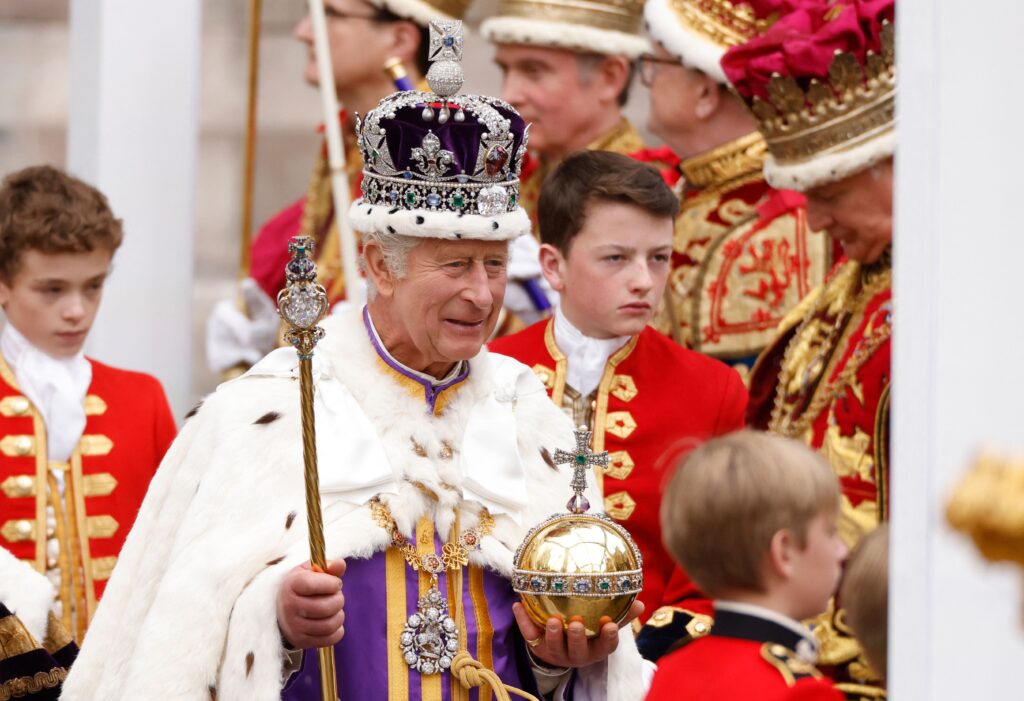
Britain's King Charles III wearing the Imperial state Crown carrying the Sovereign's Orb and Sceptre leaves Westminster Abbey after the Coronation Ceremonies in central London on May 6, 2023. - The set-piece coronation is the first in Britain in 70 years, and only the second in history to be televised. Charles will be the 40th reigning monarch to be crowned at the central London church since King William I in 1066. Outside the UK, he is also king of 14 other Commonwealth countries, including Australia, Canada and New Zealand. (Photo by Odd ANDERSEN / AFP) (Photo by ODD ANDERSEN/AFP via Getty Images)
In Which Countries Is King Charles III the Head of State? King Charles III is not only the king of the United Kingdom. Apart from being the monarch of the UK, he is also at the same time, King or Head of State in 14 other countries.
The British monarch’s role as the Head of State in other Commonwealth realms, such as Canada, Australia, New Zealand, and several other countries, is a result of historical ties and shared institutions.
These countries are part of the Commonwealth of Nations and share a common symbolic monarch, but they are sovereign nations with their own governments and legislatures.
In how many countries is King Charles III the Head of State?
He is the head of state of 15 countries in all. Do you know these countries? Keep reading
READ: BREAKING: BRICS to invite 6 new members in January 2024 (Check the countries)
Countries where King Charles III the Head of State
Here is the List of countries the King is also a Head of State:
United Kingdom
Canada
Australia
New Zealand
Papua New Guinea
Jamaica
Bahamas
Grenada
Saint Kitts and Nevis
Saint Lucia
Antigua and Barbuda
Saint Vincent and Grenadines
Solomon Islands
Tuvalu
Belize
The role of King Charles III the Head of State varies from country to country, there are some common benefits and contributions that he provides to these nations:
1. Symbolic and Unifying Figure: The King serves as a unifying and stabilizing symbol for the nations she is the Head of State for. Her presence represents continuity, tradition, and national identity. This can be particularly valuable in countries with diverse populations and historical ties to the British monarchy.
2. Constitutional Monarchy: In constitutional monarchies, the King’s role is largely ceremonial and symbolic. She represents the state and its continuity, while the day-to-day governance is carried out by elected officials and governmental bodies. This separation of powers helps maintain a balanced political system.
3. Tourism and Cultural Heritage: The monarchy is often associated with cultural heritage and history. Royal palaces, castles, and events draw tourists, contributing to the economy of the countries she is the Head of State for.
4. Diplomatic Functions: The King plays a role in diplomacy by receiving foreign dignitaries, ambassadors, and leaders on state visits. These interactions can foster diplomatic relationships and strengthen international ties.
5. National Celebrations and Events: The King’s presence at national celebrations, holidays, and events adds a sense of grandeur and importance. Her participation in ceremonial functions can instill a sense of pride and unity among citizens.
6. Charity and Philanthropy: Members of the royal family, including the King, are often involved in charitable activities and philanthropic endeavors. Their patronage of various organizations and causes can bring attention and support to important social issues.
7. Continuity and Stability: Having a monarch provides a sense of continuity and stability in government. Even during times of political change, the monarch’s role remains consistent, helping to maintain a sense of order.
8. Soft Power and International Relations: The monarchy can exert a form of soft power on the global stage. The King’s visits, interactions with other leaders, and participation in international events can contribute to a nation’s reputation and influence.
Do you have a question that needs a well-researched answer? If yes, leave that question as a comment on this post and we shall do our best to find the answers for you, or send the question to our email [email protected]. We shall be more than glad to provide the best answers to your questions.
READ: Study In Italy For Free | Fully Funded Siena Scholarship | No IELTS Required
We hope the answer to the question has been useful.
Send Stories | Social Media | Disclaimer
Send Stories and Articles for publication to [email protected]
We Are Active On Social Media
WhatsApp Channel: JOIN HERE
2024 BECE and WASSCE Channel - JOIN HERE
Facebook: JOIN HERE
Telegram: JOIN HERE
Twitter: FOLLOW US HERE
Instagram: FOLLOW US HERE
Disclaimer:
The information contained in this post on Ghana Education News is for general information purposes only. While we endeavour to keep the information up to date and correct, we make no representations or warranties of any kind, express or implied, about the completeness, accuracy, reliability, suitability or availability with respect to the website or the information, products, services, or related graphics contained on the post for any purpose.



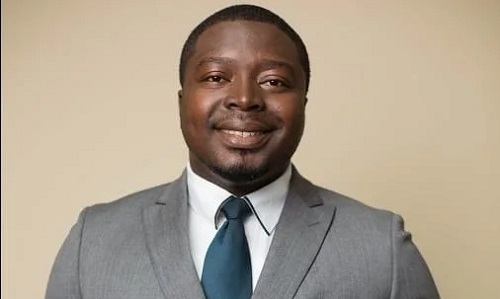 Profile Of Kwabena Boateng, Ejisu MP Elect
Profile Of Kwabena Boateng, Ejisu MP Elect 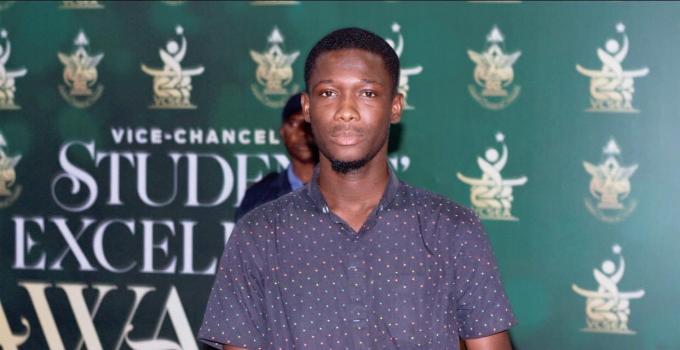 KNUST student honoured at International Sports Media Awards (AIPS)
KNUST student honoured at International Sports Media Awards (AIPS) 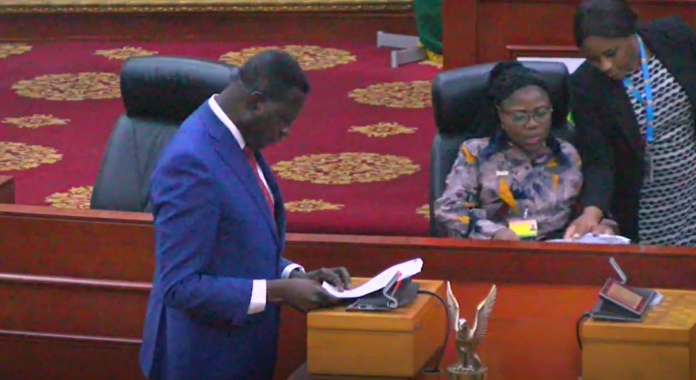 GNAPS calls for urgent subsidy of BECE charges for private schools
GNAPS calls for urgent subsidy of BECE charges for private schools  Update On Teacher Unions’ Negotiations With Government
Update On Teacher Unions’ Negotiations With Government  How to Create Good Study Habits for Exams
How to Create Good Study Habits for Exams 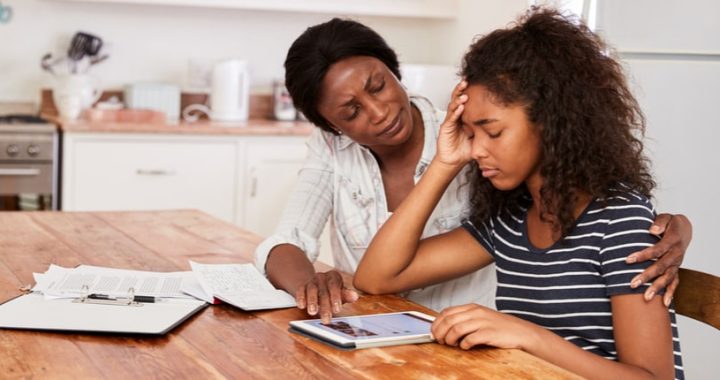 How to Help Your Child Prepare for Exams
How to Help Your Child Prepare for Exams  GES To Query 42 Teachers In The Upper West Region; Here’s Why
GES To Query 42 Teachers In The Upper West Region; Here’s Why